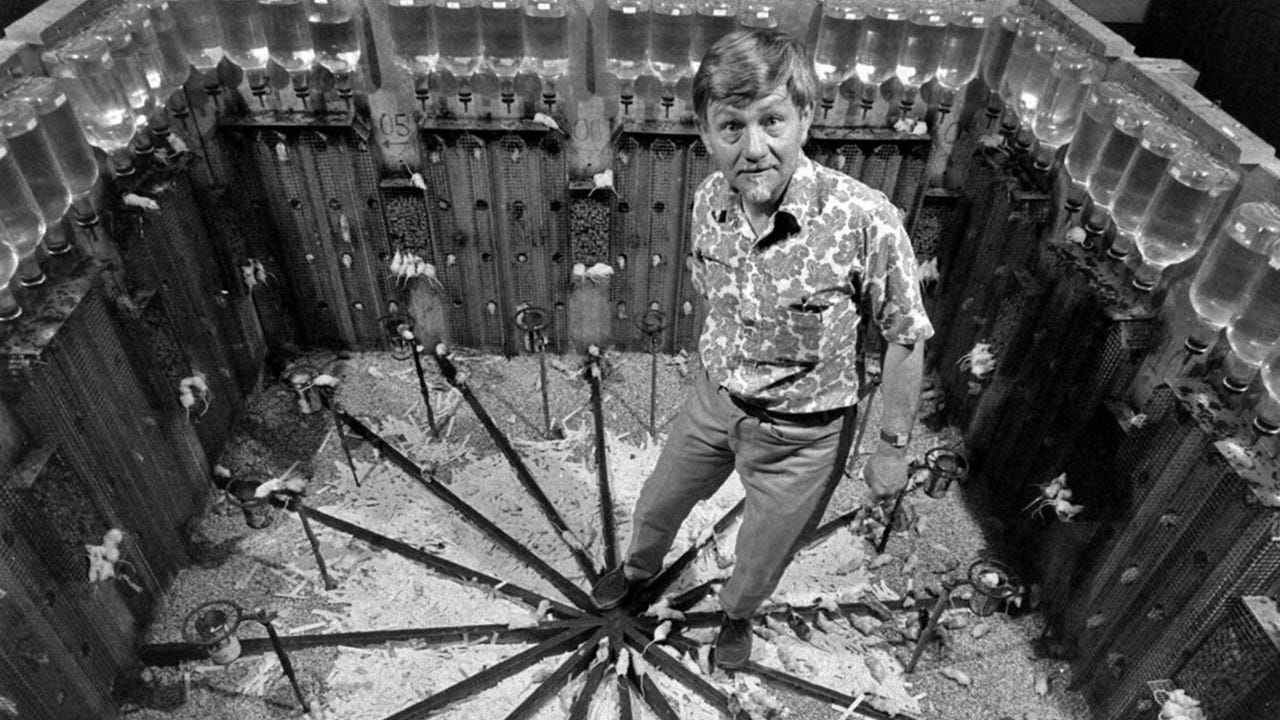How did our people become so weak?
How did our once great nations fall into decadence?
How did such an inferior, devilish race conquer our people?
I will answer these questions with two words: complacency kills.
The first time I saw or heard this statement, was during my first tour in Iraq in 2003. After crossing into Iraq from the Kuwaiti border, my company had been convoying for weeks, heading north on abandoned highways in route to our main mission. We made a stop at an abandoned mineral-processing factory which our forces had turned into a base called “Camp Tiger.”
As we entered the camp, I looked up and saw makeshift sign made with cardboard and marker placed above the entrance — it stated: “Complacency Kills.” I asked my platoon sergeant what the hell it meant, and he told me: “That sign is to remind you that you’re not home, Gage; to not get comfortable in a warzone, because if you get caught off-guard, you’ll end up dead.”
His words stuck with me ever since.
This lesson I learned when I was 18 years old, rings true more than ever today.
It’s Not Just the jews, Stupid!
For those of you who have been following me for years, the one thing you’ll never see me do is blame everything on the jews, for they are only part of the problem. “But how did the descendants of the Romans, Spartans, Vikings, along with the greatest of humanity, become this pathetic?” you ask.
Well, ironically, when people get too comfortable, they get lazy, fat, stupid, and detached from reality. The hardships our ancestors endured, that built their character which built our great nations, are long gone and dead — and they were killed by our complacency.
However, isn’t just our fault, it also seems to be an natural cycle of things. The quotes below from Wikipedia are on The Mouse Utopia Experiment. What’s interesting about it is, you’ll notice what happened the mouse utopias and to the mice living within them, is the same thing happening the entire West and the people within it, for the same reasons:
"Behavioral sink" is a term invented by ethologist John B. Calhoun to describe a collapse in behavior that can result from overpopulation. The term and concept derive from a series of over-population experiments Calhoun conducted on Norway rats between 1958 and 1962.[1] In the experiments, Calhoun and his researchers created a series of "rat utopias"[2] – enclosed spaces where rats were given unlimited access to food and water, enabling unfettered population growth. Calhoun coined the term "behavioral sink"[3] in a February 1, 1962, Scientific American article titled "Population Density and Social Pathology" on the rat experiment.[4] He would later perform similar experiments on mice, from 1968 to 1972.[5]
In the 1962 study, Calhoun described the behavior as follows:
Many [female rats] were unable to carry the pregnancy to full term or to survive delivery of their litters if they did. An even greater number, after successfully giving birth, fell short in their maternal functions. Among the males the behavior disturbances ranged from sexual deviation to cannibalism and from frenetic overactivity to a pathological withdrawal from which individuals would emerge to eat, drink and move about only when other members of the community were asleep. The social organization of the animals showed equal disruption.
The common source of these disturbances became most dramatically apparent in the populations of our first series of three experiments, in which we observed the development of what we called a behavioral sink. The animals would crowd together in greatest number in one of the four interconnecting pens in which the colony was maintained. As many as 60 of the 80 rats in each experimental population would assemble in one pen during periods of feeding. Individual rats would rarely eat except in the company of other rats. As a result extreme population densities developed in the pen adopted for eating, leaving the others with sparse populations.
In the experiments in which the behavioral sink developed, infant mortality ran as high as 96 percent among the most disoriented groups in the population.[4]
To sum it all up, when a population has an overabundance of resources and prosperity, they eventually become complacent, their behavior changes into that which is self-destructive, and whatever they built up, goes down with them. So, all the jew has to do to conquer the Roman, the Spartan, the Viking, or whoever, is show up at a time when their people are beginning to get too prosperous. In a weakened state, and with their guard down, the jew is able to demand equal rights and access to power, allowing him to begin his parasitical, satanic war of subjugation against them, without them even knowing.
The Traitor is the Plague
A jew is always going to jew, and we Gentiles only learn this truth when it is far too late, so the greatest responsibility lies with our treacherous politicians — the Shabbos goy traitors — who know the jew and his nature, yet willingly works with him for their own interests. Thus, traitors are far worse than the jew, for they protect the him and lead us astray.
I want to share with you a beautiful quote which is misattributed to Marcus Cicero, but is actually from Taylor Caldwell, from her novel A Pillar of Iron:
A nation can survive its fools, and even the ambitious. But it cannot survive treason from within. An enemy at the gates is less formidable, for he is known and carries his banner openly. But the traitor moves amongst those within the gate freely; his sly whispers rustling through all the alleys, heard in the very halls of government itself. For the traitor appears not a traitor; he speaks in accents familiar to his victims, and he wears their face and their arguments; he appeals to the baseness that lies deep in the hearts of all men. He rots the soul of a nation; he works secretly and unknown in the night to undermine the pillars of the city; he infects the body politic so that it can no longer resist. A murderer is less to fear.”
Time to Fix Things
Taking everything into account, we have three things working against us:
• The jew
• The Shabbos goy
• Our complacency
We won’t be able to change the jew or the traitor, but we can certainly change ourselves and our behavior. In fact, these are the only things we can change, beginning first with ourselves in our personal lives, and going on from there to inspire others to do the same.
The first step to solving all of our problems, is to ensure that we are not contributing to the decadent pestilence that has poisoned our people and destroyed our societies; we each must become a living example of the cure.
The second step is to start organizing people who are examples of the cure into larger and larger numbers, winning the hearts and minds of the People, so we can get into power.
The third and final step is to get into power and administer the cure.







“You do not rise to the level of your goals. You fall to the level of your systems.” - James Clear
Complacency is a disposition that is affected by habit. Only in tailoring one's habits to his desired identity, in this case, fighting complacency, can one make progress towards his goals.
That being said, it would be nice if you could share some concrete examples of good daily habits.
To continue off of https://substack.com/profile/280594464-garfrig-frigulhorn/note/c-74246500, fighting an enemy first requires building an identity as someone who fights the enemy. And one’s identity is tied to their habits.
When you go to a store, do you pay attention to who’s manning the stall? Do you research the types of people who work for a company that provides the products you buy?
We live in a society where it’s illegal for an employer to discriminate against a potential hire on the basis of race, sex, etc. However, if you think about it, a customer is kind of like an employer for a business.
The difference between a customer and an employer is that the customer has the right to discriminate against a business for such reasons. The business can’t sue a customer and say, the only reason he didn’t dine with us is because he didn’t like the fact that 90% of our employees are his existential enemies.
That is, at least, American law at present.
Now, you can’t exactly go out and publicly advertise the fact that you discriminate against businesses for such reasons, because even though it’s not against the law for a customer to do that, they can still screw with you in other ways once they single you out as their enemy.
Your goal is to develop the habits of someone who fights the enemy while simultaneously keeping it a secret from your enemies, so that they cannot respond in kind.
This is best reached with passive discrimination. You don’t go out of your way to assail the enemy, but if there’s an opportunity not to give money to your enemy, you take it.
If someone presses you on it, you make excuses. You gaslight. You deprive the enemy of your money and favor as much as you can while simultaneously making it difficult for them to pinpoint your intentions.
And the beauty of this system is that any money that you save, you can then donate to those who fight the enemy on the frontlines.
As Lucas explains in this post (https://substack.com/@lucasgage/p-149916034), the discipline you build from forgoing the benefits of the enemy’s product will build upon the discipline you need to donate 10% of your income (the same habit you should assume your enemy has).
This discipline doesn’t just extend to not giving your enemies your hard-earned money, but it can also extend to avoiding foods associated with your enemy.
If, for instance, your enemy has some positive association with bagels, you can make it a habit not to eat bagels. Not only do you get fitter from avoiding a high-calorie snack, but you deprive yourself of the psychological opening your enemy drills into you with their food.
If you think that’s ridiculous, go on Twitter (or X) and look at the myriad tweets justifying limitless immigration because, “Otherwise, how would we get this authentic shitistani food?”
This is retarded leftwing propaganda, sure, but it also highlights the power that food has in lowering people’s psychological guard. You need your guard up at all times when dealing with an existential threat, so you should be conscious of these tactics.
If you can’t go without bagels, fine. Take it slow. Build up the easiest habits first and go from there.
You’ll save money. You’ll get fitter. And you’ll build an identity and discipline that will make you more resistant to your enemy’s advances.
And this will all be accomplished without compromising your peaceful normie life.